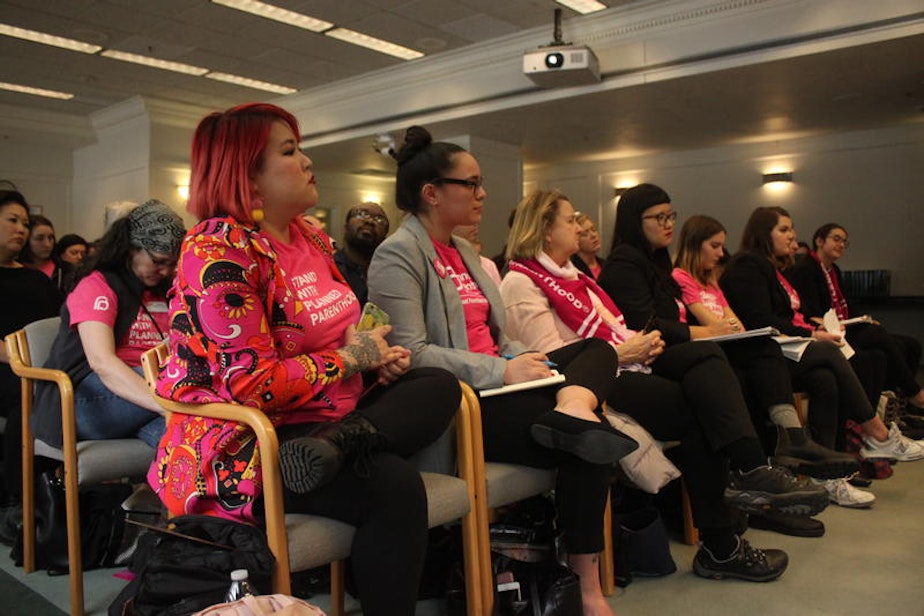#MeToo Lessons Spur Mandatory Sex-Education Proposal In Washington

Issues of sexual harassment raised in the #MeToo era have trickled their way through just about every part of Washington state — from business, to government, and now possibly schools as state lawmakers flag consent as the cornerstone of a mandatory sex-education proposal.
At a divided hearing in Olympia on Wednesday, state Sen. Claire Wilson argued in favor of a more comprehensive sex-education curriculum that builds off existing safe-sex lessons, such as abstinence.
“Saying no doesn’t even give you the opportunity to talk about what happens when I say yes,” said Wilson, who worked for 25 years as an early education administrator before coming to the Legislature.
Sponsored
The Auburn lawmaker is sponsoring a measure to make sex education mandatoryinstead of allowing schools to decide for themselves.
Places that already offer sex education — 60 percent of high schools and 30 percent of middle schools — follow state guidelines to talk about abstinence, contraception and other ways of avoiding pregnancy and sexually transmitted diseases.
Some critics think those lessons already go too far. A number of people testifying at the Senate K-12 committee applauded state Rep. Vicki Kraft when she said abstinence training is plenty.
“Nor should we be using taxpayer dollars to fund how-to-have sex curriculum for young children,” said Kraft, a Republican from Vancouver.
Kraft also suggested the bill, which advocates for a LGBTQ-appropriate curriculum, would influence the sexuality of students.
Sponsored
State Superintendent Chris Reykdal dismissed those concerns, stressing they’re not supported by scientific evidence. More important, he said, is the need to address unwanted kissing, groping and other forms of sexual harassment that affect about a third of female students in K-12 public education.
“This is not a matter of opinion anymore when there is a public health crisis,” Reykdal said.
Health officials with the governor’s Interagency Council on Reproductive Parity have suggested mandatory sex education, among a number of other proposals, as a way to improve health care outcomes in the state.
The report comes as young adults continue to contract the majority of sexually transmitted diseases despite making up only a quarter of the population. It also follows evidence that suggests comprehensive sex education can reduce the number of unplanned teen pregnancies.
King County, which has already adopted a curriculum that includes lessons on consent, reported a 55 percent drop in teen pregnancies between 2008 and 2015.
Sponsored
Momentum for sex-ed reform also is building nationally, albeit unevenly, as other states move to mandate the practice and draw lessons from the #MeToo movement.
Last year, six states voted to either require or encourage consent-based, sex-ed curriculum — including lessons on harassment and communication skills for healthy relationships.
But not all states are following suit. One conservative lawmaker from Idaho, for example, has proposed making sex education an opt-in program, as opposed to automatically enrolling students and allowing parents to pull them out.
Under Washington’s proposal, parents would still be able to pull their children out of sex-ed classes.
The measure has yet to be scheduled for a committee vote.
Sponsored
Copyright 2019 Northwest News Network
